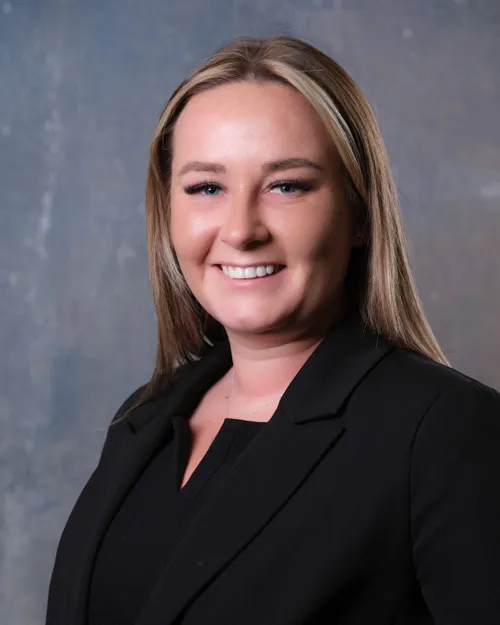Divorce can be a complex and emotional process. It marks not only the end of a relationship, but also the beginning of financial separation. While many people believe that finalising the divorce itself legally severs all financial ties, this is not the case. Without a legally binding Financial Order, either party can make future claims against the other’s income, property, or pensions, even years after the divorce.
A Financial Order solicitor from AFG Law can provide advice on the different types of Financial Orders and can assist in obtaining a Financial Order following a divorce. Furthermore, we have a team of expert family law solicitors who can guide you through all aspects of divorce, including child arrangements.
What Is a Financial Order?
A Financial Order is a legally binding agreement, approved by the Family Court, which sets out how a divorcing couple will divide their financial resources and assets. It can cover:
- Property (including the family home)
- Savings and investments
- Pensions
- Debts and liabilities
- Spousal maintenance payments
- Child maintenance (in some cases)
Without a Financial Order, either party can reopen financial matters at any time after the divorce is finalised. For example, if one party wins the lottery or receives an inheritance, the ex-spouse could potentially make a claim, unless there is a Clean Break Order in place.
Why Use a Financial Order Solicitor?
The financial aspects of divorce can be extremely complex. Emotions, conflicting interests, and legal technicalities can make it difficult to reach a fair outcome. A Financial Order solicitor provides essential support by:
- Explaining your legal rights and obligations
- Helping to gather full financial disclosure from both parties
- Advising on what a fair settlement might look like
- Assisting you in the application for a Financial Order
- Drafting or reviewing Financial Order documents
- Representing you in negotiations or court, if necessary
- Ensuring all terms are enforceable under English law
Having expert legal advice reduces the risk of future disputes and can give you peace of mind that your financial future is secure.
Types of Financial Orders
There are several types of Financial Orders available through the court, depending on the needs and circumstances of each case:
Consent Order
A Consent Order is the most common type of Financial Order. It formalises an agreement reached voluntarily between both parties. A Financial Order solicitor will draft the agreement to ensure it meets legal standards and protects your interests.
The order is then submitted to the court for approval. As long as the agreement is fair and both parties have had proper legal advice, the court will usually approve it without a hearing.
Clean Break Order
A Clean Break Order ends the financial relationship between the parties. As soon as this is in place, neither party can make a financial claim against the other in the future. This is often used where there are no children or dependent spouses, or where both parties can be financially independent.
A clean break can also form part of a wider Consent Order that includes division of assets and debts.
Pension Sharing Order
Dividing pensions is a critical and often overlooked aspect of divorce. A Pension Sharing Order allows one party to receive a share of the other’s pension pot. A solicitor will help assess the value of pensions and advise on the best way to share or offset pension rights as part of the settlement.
Lump Sum Order
This requires one party to pay a fixed amount of money to the other, either in a single payment or by instalments. It is commonly used to equalise the division of assets or to provide one party with immediate financial security.
Property Adjustment Order
This type of order deals with the transfer, sale, or division of property. It may specify who remains in the family home, whether it should be sold, or how the proceeds should be divided.
Spousal Maintenance Order
If one party cannot support themselves after the divorce, the court may order ongoing payments from the other spouse. A solicitor will help assess whether financial support via maintenance payments is appropriate and, if so, how much should be paid and for how long.
The Financial Disclosure Process
Before any Financial Order can be made, both parties are required to provide full and frank disclosure of their finances. This includes:
- Income from all sources
- Bank statements and savings
- Property valuations
- Pension valuations (cash equivalent value)
- Debts and liabilities
Failure to disclose assets can lead to court sanctions or the reopening of the case later.
A Financial Order solicitor will guide you through the disclosure process, help interpret the other party’s disclosures and ensure that everything is accurate and complete.
What Happens If You Can’t Agree?
If a couple cannot agree on a financial settlement, either party can apply to the court for a Financial Remedy Order. This involves several stages:
- First Appointment (FDA) – The court reviews financial disclosure and sets out what needs to happen next.
- Financial Dispute Resolution (FDR) – A judge helps both parties try to reach an agreement.
- Final Hearing – If no agreement is reached, the judge will impose a settlement. The judge will make a decision based on how long the divorcing couple have been married, age, standard of living, financial needs, obligations and responsibilities.
Legal representation is strongly advised during this process to ensure that your interests are protected and that you present your case effectively.
Applying for a Financial Order
The best time to apply for a Financial Order is after the Conditional Order or Decree Nisi, but before you obtain the Final Order or Decree Absolute.
The timeframe depends on whether the agreement is made by consent or through contested proceedings.
- A Consent Order can typically be drafted and approved within 6–8 weeks, assuming both parties cooperate.
- Contested proceedings can take 6–12 months or longer, depending on complexity and court availability.
Early legal advice can help resolve matters more quickly and avoid lengthy disputes.
Why Choose AFG Law’s Financial Order Solicitors?
Our divorce solicitors are dedicated to helping our clients secure a fair outcome when obtaining a Financial Order. We understand that the divorce process is complex, with the court considering many factors when dividing assets between spouses or civil partners.
Each case can lead to different outcomes, but we will always advise you on what we believe is the most fair resolution and work tirelessly to achieve it in a cost effective manner.
Our divorce solicitors are here to support you throughout every stage of the divorce process, from filing for divorce and responding to divorce papers to negotiating financial agreements and managing child custody arrangements and parental responsibility.
Contact AFG Law’s family department today by calling 01204 920106 or emailing familysolicitor@afglaw.co.uk for a free initial over the phone consultation.
AFG Law have multiple offices with family law teams in Manchester, including Stockport, Bolton, Cheadle and Bury. We can also assist clients nationwide with our family law services remotely.























